Sudden Sharp Pain Under The Left Rib Cage – Causes, Symptoms, And Treatments
Experiencing sharp pain under the left rib cage may indicate an urgent medical condition.

Image: Midjourney/ StyleCraze Design Team
Have you felt a piercing pain under your left rib when you take a breath or move just the slightest bit sometimes? While it is common to experience such pain, sometimes it can be an indication of an injury or trauma in the stomach or any vital organ on the left side of your body. In this article, we take a deeper look at the different factors behind the pain under your left rib.
In This Article
Causes And Symptoms Of Pain Under The Left Rib Cage
Sharp pain under the left rib cage could be due to a variety of reasons. Several organs are located in this region of your body – like your heart, spleen, lung, colon, kidney, pancreas, and stomach. Hence, the causes of left side pain below the ribs can be many.
While most of these causes can be treated right at home, some of them could be life-threatening and may need immediate medical diagnosis, followed by appropriate treatment.
The life-threatening causes of the pain under your left rib cage include:
1. Heart Attack

The symptoms of a heart attack (other than dull pain under the left rib cage and back)include the following:
- A sudden feeling of dizziness
- Fatigue
- Nausea
- Heartburn
- Indigestion
- Cold sweat
- Shortness of breath
- Tightness, aching, or pressure in your chest that spreads to your jaw, back, or neck (1)
2. Angina

This is also a heart-related condition that can cause pain on the left side of the body under the ribs. Angina refers to severe pain in the chest that may spread to the shoulders, arms, and neck. This left side rib pain occurs when the blood traveling to your heart lacks oxygen. Its symptoms are similar to that of a heart attack – like dizziness, shortness of breath, fatigue, sweating, etc. (2).
A survey involving 1612 adults with coronary artery disease (CAD) established that angina is a common issue in patients with CAD in the US. 21.2% of the surveyed patients reported experiencing angina at least once a month. Out of them, 12.5% of people experienced it daily or weekly, and 8.7% of them monthly.
3. Pericarditis

This condition is caused due to the swelling of the membrane (pericardium) surrounding your heart. There are four types of pericarditis:
- Acute Pericarditis: Its symptoms last for less than 3 weeks.
- Incessant Pericarditis: Its symptoms are continuous and may last for 4-6 weeks.
- Recurrent Pericarditis: Its symptoms keep recurring every 4-6 weeks.
- Chronic Pericarditis: The symptoms usually last longer than 3 months.
The symptoms of pericarditis are:
- Sharp pain and tenderness in the middle or left of your chest
- Fatigue
- Cough
- Unusual swelling of your abdomen/leg
- Heart palpitationsi A sensation that the heart is missing heartbeats, pounding and racing due to stress and variation in breathing.
- Shortness of breath
- A slight fever (3)
4. Cancer
Cancer-related rib pain may vary in intensity, but is generally in the mild to severe range. Painful rib metastasis (the spread of cancer cells) is a common symptom in non-small cell lung cancer (4). When cancer cells metastasize to the rib bone, they may cause rib pain. In rare cases, cancer may originate in the ribs and cause discomfort and pain in the rib cage. Some cancer treatments like radiation therapy may also cause pain and inflammation in the ribs. You may also experience rib pain when a tumor presses against nerves in the rib area. Hence, it is important to consult your healthcare professional if you are experiencing persistent rib pain to get a proper diagnosis and treatment plan.
5. Gastrointestinal Disorders
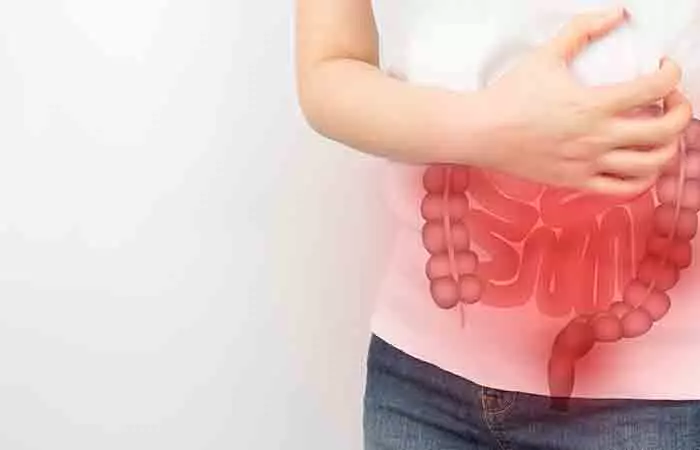
Gastrointestinal disorders include conditions, such as irritable bowel syndrome, hemorrhoidsi Swollen, enlarged, and inflamed veins in the anus and lower rectum that cause pain, bleeding, and discomfort. , constipation, perianal abscesses, etc. The digestion-related causes of pain under the left rib cage after eating include:
- Trapped gas in the digestive tract
- Constipation
- Heartburn
- Gastroesophageal reflux disease (GERDi A chronic digestive disorder in which stomach acid repeatedly flows back and irritates the food pipe lining. )
- Irritable bowel syndrome (IBS)
- Inflammatory bowel disease (IBD)
Pain caused due to digestive issues like gastritis, diverticulitis, and stomach ulcers may possibly cause pain at or referred to the left upper quadrant. Dr. Taryn Silverstein, a board-certified gastroenterologist and a member of the Gastroenterology Associates of Florida (GAF), says, “Diverticulitis more commonly presents with pain in the left lower quadrant, and gastritis/gastric ulcers more typically cause pain in the epigastrium (upper, center abdomen below the sternum), which may radiate to the back.”
 Quick Tip
Quick Tip6. Issues With Other Organs
As we have already mentioned, there are other organs located in the upper left abdominal region of your body, and issues with them can also trigger a sharp pain under your left rib cage.
Such issues include:
- Kidney stones – They are hard calcium deposits that form in the kidneys and later move towards the bladder, causing extreme pain while passing urine. Kidney stones may be caused by not drinking enough water or consuming too much salt or sugar.
- Pancreatitis – Inflammation of the pancreas.
- An enlarged spleen – The spleen is located in the upper portion of the left rib cage and is normally about the size of your fist. An enlarged spleen is caused due to liver infections, cirrhosisi Chronic liver damage in which normal liver function is impaired due to the formation of scars. , etc.
7. Infections
Certain infections may also be responsible for the sudden ache in the left part of your chest like:
- Pneumonia, which causes sharp chest pain while coughing.
- Pleurisy – an infection that causes the membrane surrounding your lungs to become inflamed.
- A collapsed lung
- Broken ribs
- Endocarditis, which causes an infection in the inner lining of your heart.
- Appendicitis – A condition that causes inflammation of your appendix.
- Costochondritis – A condition that causes inflammation of the cartilage that connects a rib to the breastbone.
 Quick Tip
Quick TipIn addition, conditions related to the female reproductive system, such as ovarian cysts, endometriosis, or pelvic inflammatory disease (PID) may cause left side pain under the ribs in females.
If you have developed any of the above health conditions, you are at a higher risk of developing pain under your left rib cage. Hence, it can be said that all these conditions act as risk factors behind pain in the left rib cage.
It is best to consult a doctor immediately if you experience any of the other symptoms of the life-threatening conditions listed above. Your doctor or cardiologist is most likely to carry out the following diagnostic analysis to rule out other conditions associated with the pain under your left rib cage.
Diagnosis

If you are experiencing sudden sharp pain on the left side under the ribs when breathing, your doctor may begin with a physical examination and ask you whether you have a family history of a heart condition. If they suspect you have heart disease, you may be asked to take an electrocardiogrami The simplest and fastest test used to check the heart’s rhythm and measure its electrical activity. test to rule out the possible causes (5).
Other tests include blood, urine, and/or stool test to look for other potential causes like kidney stones or pancreatitis.
If the cause of the pain on the left side under the ribs is not yet determined, you may be asked to undergo an X-ray, CT scan, or MRI scan so that your doctor can take a better look at your organs and areas of inflammation (if any).
Before choosing what to do next, it is important to assess the degree and type of your symptoms if you suddenly develop sharp pain under your left rib cage. Learn more in the next section.
Self-Triage Guidance
It is important to evaluate your symptoms before visiting a doctor. Consider these questions:
- How severe is the pain?
- Has the severity decreased or increased over time?
- Do you have any accompanying symptoms like dizziness or shortness of breath?
- How long have you been experiencing the pain?
If the pain is severe or is accompanied with additional concerning symptoms, seek immediate medical attention.
Once the cause of the pain is determined, your physician will prescribe treatments accordingly.
Treatments
Treatments are usually prescribed based on the cause of the pain.
If any inflammation is causing lower left rib pain, you may be asked to take NSAIDsi A class of therapeutic drug, non-steroidal anti-inflammatory drugs are used to relieve pain and reduce inflammation. to relieve the pain and swelling (6).
Bacterial infections may need you to take antibiotics, while conditions like kidney stones that are hard to pass may warrant surgery if drinking a lot of water does not remedy the situation.
Immediate lifestyle changes or open bypass surgery may be needed for those whose upper left abdominal pain is associated with heart conditions like a heart attack (7).
Infographic: Reasons Behind Pain Under The Left Rib Cage
Sharp pain under your left rib cage is a cause of concern as it may indicate underlying heart-related health issues. While it may be due to a passing heartburn, some reasons may be grave and require immediate medical inspection.
Check out the infographic below to read about the serious infection or disorder-related cause behind your pain. Illustration: StyleCraze Design Team
Sudden sharp pain under the left rib cage could have many reasons. In most cases, gas or esophageal issues could be the cause. While many of them can be treated right at home, some need a medical diagnosis. In addition, heart attack, pericarditis, and gastrointestinal disorders need immediate attention. Your doctor may prescribe some effective treatment options to relieve the rib pain on the left side. If you have severe pain below the left rib cage that lasts more than a day, consult your doctor to determine the underlying conditions.
Frequently Asked Questions
What lifestyle changes can help reduce rib cage pain?
A healthy posture may help relieve pressure on the ribs and regular gentle exercise, such as yoga or stretching, can strengthen muscles and increase flexibility. Avoid heavy lifting or activities that strain the chest area to help reduce rib cage pain. In addition, certain relaxation techniques may help manage stress, not smoking, and maintaining a balanced diet to support general health may also contribute to reducing rib cage pain.
Are there any warning signs for serious conditions associated with left rib pain?
Breathing difficulties, sudden, intense radiating pain, and persistent chest discomfort are warning symptoms of serious illnesses associated with left rib pain. Seeking medical assistance immediately is essential if symptoms such as coughing up blood, fever, or unexplained weight loss are present.
How can I differentiate between muscle strain and organ-related pain?
Examine the type of pain to distinguish between it and organ-related discomfort. Generally, muscle strain causes sharp, aching, or localized pain that gets worse with movement or pressure on the afflicted area. On the other hand, pain associated with the organs usually seems deeper, sometimes radiates to other locations, and may come with other symptoms like nausea or breathing.
When to see a doctor for pain in the lower-left side of your chest?
The cause of the upper left abdominal pain could vary from something as minor as heartburn to something as severe as a heart attack. If you feel that you are experiencing symptoms of any of the life-threatening conditions listed above, along with pain under the lower left rib cage or chest pain, consult a doctor immediately.
What organ is under my right rib cage?
The liver is located at the lower right end of the rib cage. The right kidney and gallbladder are also located under the right rib cage.
What organ is below the left rib cage?
The organs located under the left rib cage or around its surrounding area are the heart, spleen, left lung, colon, left kidney, pancreas, and stomach.
How can you tell the difference between gastritis and pancreatitis?
Pancreatitis and gastritis share many of the same symptoms, such as nausea, vomiting, and abdominal pain. However, gastritis results in tarry stools, whereas pancreatitis leads to oily and foul-smelling stools. Pancreatitis also presents upper abdominal pain and pain that seems to be radiating upwards or sideways toward the back.
Can diverticulitis cause pain under the left rib?
Diverticulitis may present sudden and severe pain and discomfort on the left side of the lower abdomen. Other symptoms of diverticulitis include diarrhea or constipation, fever, and chills.
Key Takeaways
- The pain under the left rib cage may result from factors including digestive issues, liver disease, heart problems, and muscle strain.
- Left rib cage pain may be a symptom of infection, such as appendicitis and pneumonia.
- A doctor might recommend blood tests and imaging tests for a proper diagnosis.
- The treatment for the pain may include medication if it is due to inflammation, or surgery and lifestyle change if it is related to a heart condition.
Seeking relief from left rib pain? Find answers in this informative video that explores possible causes and shares practical tips to ease discomfort. Reclaim comfort and get back to enjoying life pain-free. Play it now!
References
Articles on StyleCraze are backed by verified information from peer-reviewed and academic research papers, reputed organizations, research institutions, and medical associations to ensure accuracy and relevance. Read our editorial policy to learn more.
- About Heart Disease
https://www.cdc.gov/heart-disease/about/?CDC_AAref_Val=https://www.cdc.gov/heartdisease/about.htm - Interpreting angina: symptoms along a gender continuum, Open Heart, US National Library of Medicine, National Institutes of Health.
https://www.ncbi.nlm.nih.gov/pmc/articles/PMC4854148/ - Pericarditis, StatPearls, US National Library of Medicine, National Institutes of Health.
https://www.ncbi.nlm.nih.gov/books/NBK431080/ - Radiofrequency ablation (RFA) for palliative treatment of painful non-small cell lung cancer (NSCLC) rib metastasis: Experience in 12 patients
https://www.ncbi.nlm.nih.gov/pmc/articles/PMC4632929/ - Electrocardiogram, StatPearls, US National Library of Medicine, National Institutes of Health.
https://www.ncbi.nlm.nih.gov/books/NBK549803/ - An Evidence-Based Update on Nonsteroidal Anti-Inflammatory Drugs, Clinical Medicine and Research, US National Library of Medicine, National Institutes of Health.
https://www.ncbi.nlm.nih.gov/pmc/articles/PMC1855338/ - Cardiac Surgery, StatPearls, US National Library of Medicine, National Institutes of Health.
https://www.ncbi.nlm.nih.gov/books/NBK532935/ - Noncardiac Chest Pain: Epidemiology, Natural Course and Pathogenesis, Journal of Neurogastroenterology and Motility, US National Library of Medicine, National Institutes of Health.
https://www.ncbi.nlm.nih.gov/pmc/articles/PMC3093002/
Read full bio of Dr. Zeel Gandhi
- Dr. Taryn Silverstein is a gastroenterologist and is board-certified in Internal Medicine and Gastroenterology. She has 18 years of experience in caring for patients with various gastrointestinal disorders. She attended Nova Southeastern University College of Osteopathic Medicine and subsequently spent 7 years at the University of Massachusetts completing her training in internal medicine, serving as chief resident and completing her fellowship in gastroenterology.
 Dr. Taryn Silverstein is a gastroenterologist and is board-certified in Internal Medicine and Gastroenterology. She has 18 years of experience in caring for patients with various gastrointestinal disorders. She attended Nova Southeastern University College of Osteopathic Medicine and subsequently spent 7 years at the University of Massachusetts completing her training in internal medicine, serving as chief resident and completing her fellowship in gastroenterology.
Dr. Taryn Silverstein is a gastroenterologist and is board-certified in Internal Medicine and Gastroenterology. She has 18 years of experience in caring for patients with various gastrointestinal disorders. She attended Nova Southeastern University College of Osteopathic Medicine and subsequently spent 7 years at the University of Massachusetts completing her training in internal medicine, serving as chief resident and completing her fellowship in gastroenterology.
Read full bio of Arshiya Syeda
Read full bio of Dipti Sharma








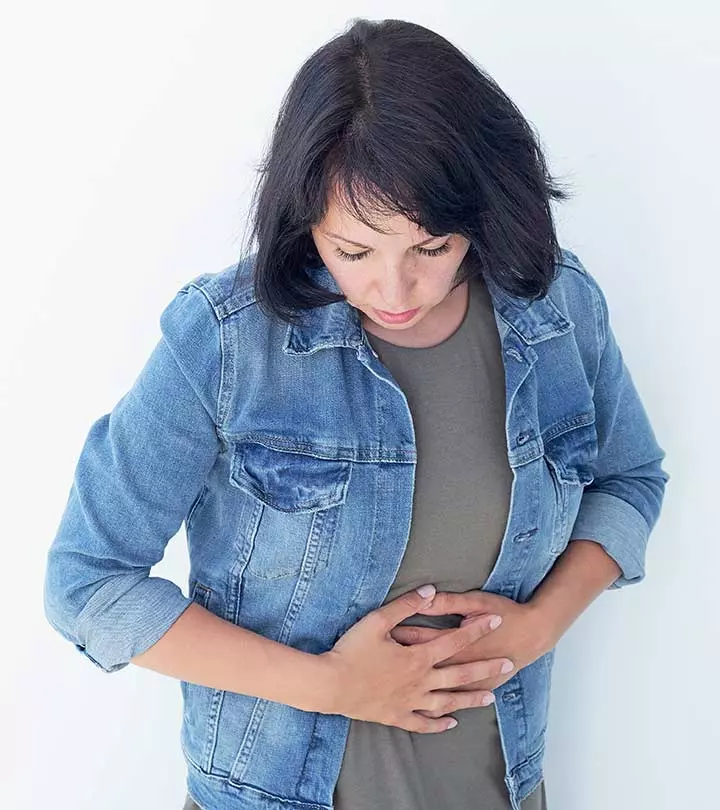



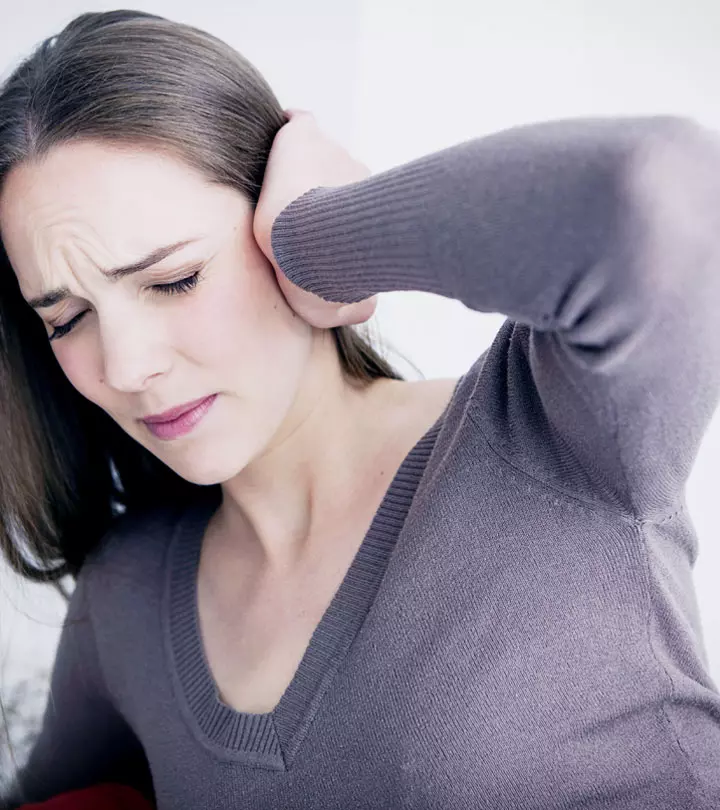


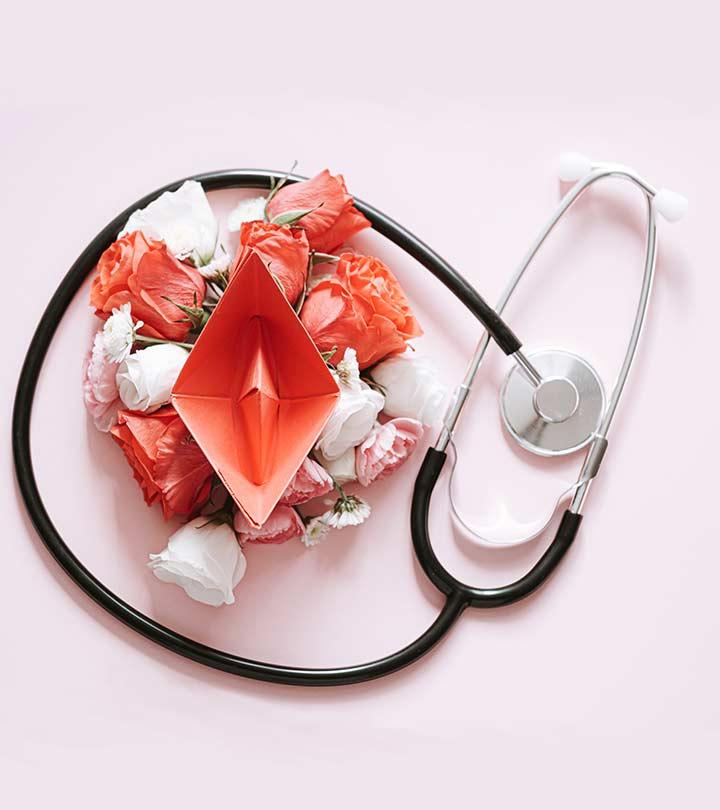
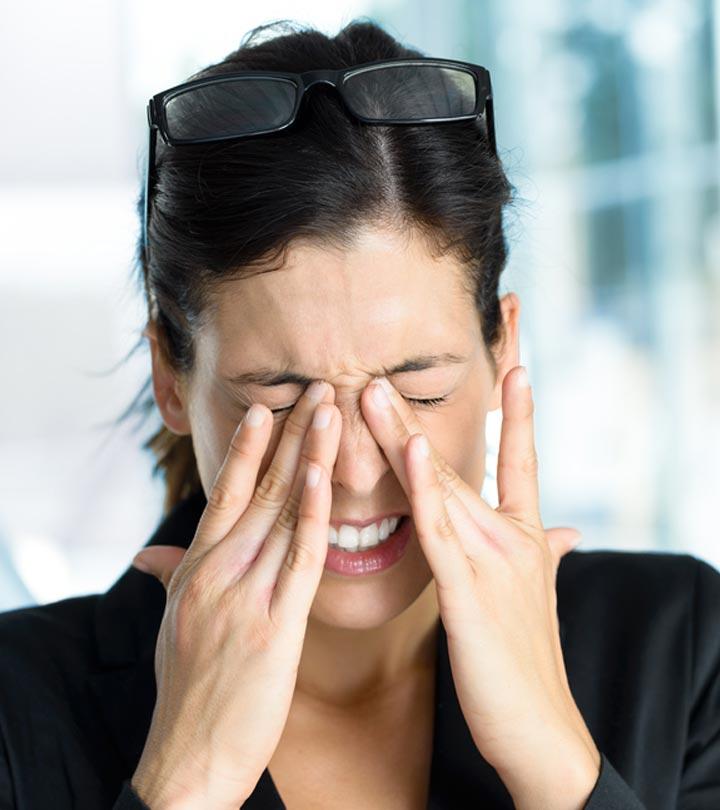


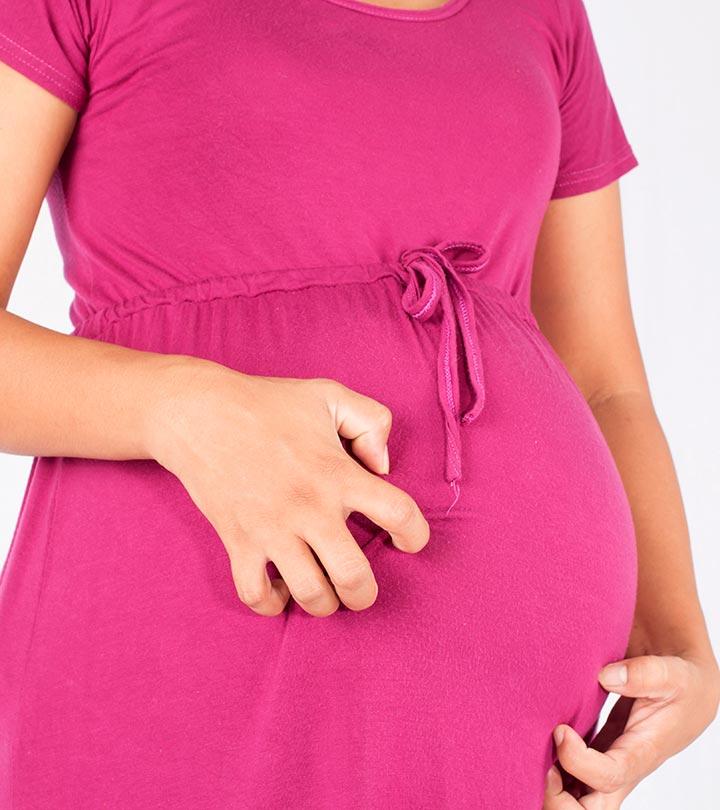
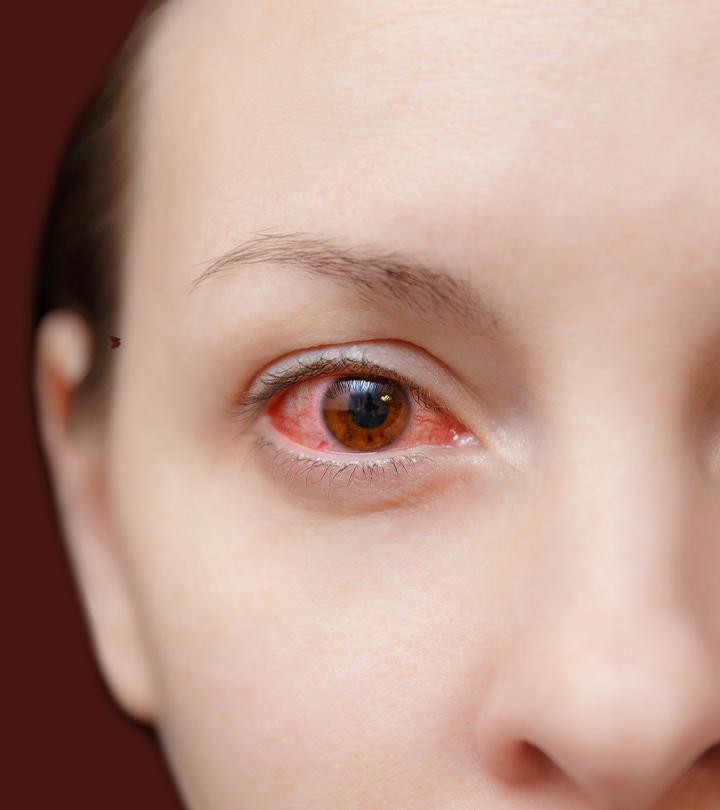



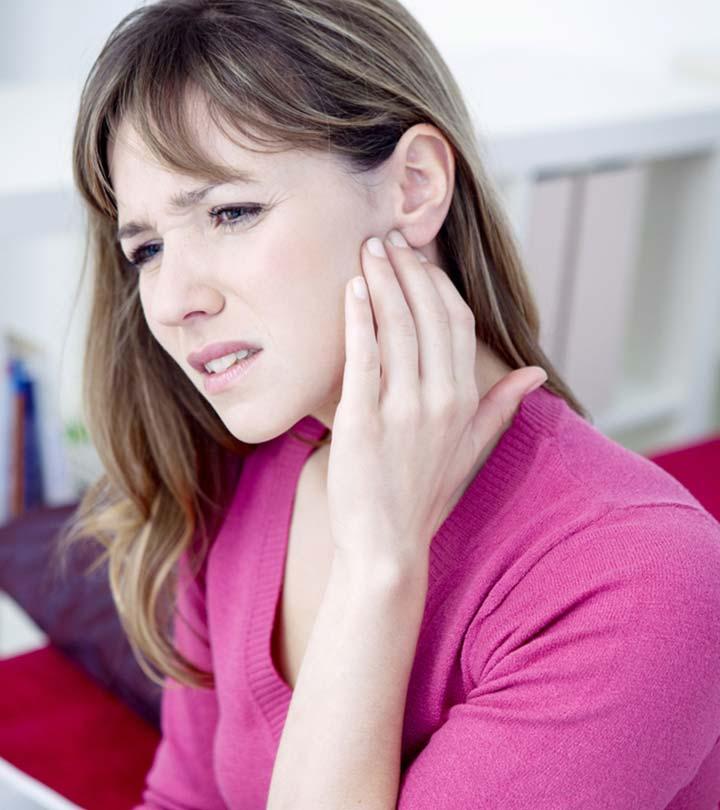
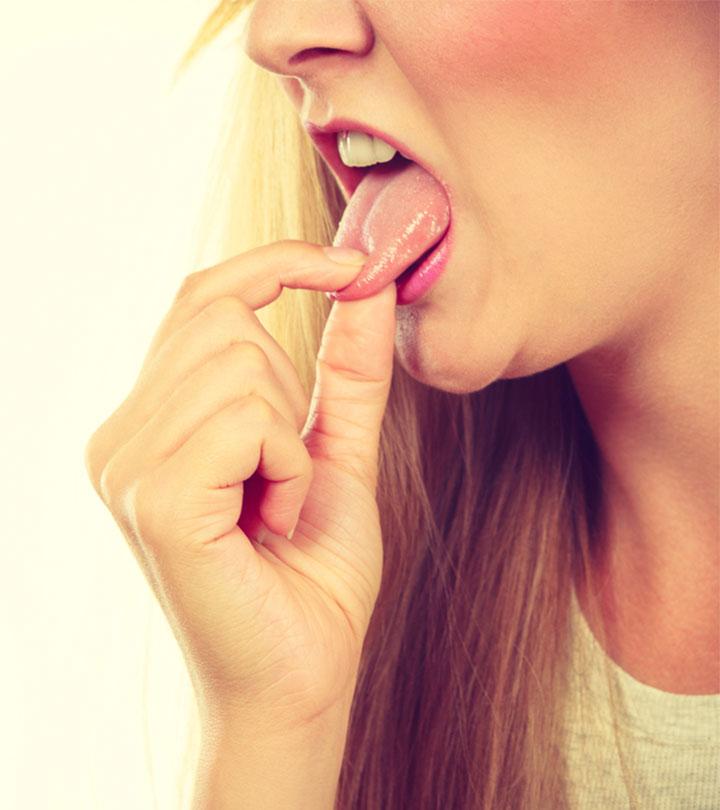
Community Experiences
Join the conversation and become a part of our empowering community! Share your stories, experiences, and insights to connect with other beauty, lifestyle, and health enthusiasts.